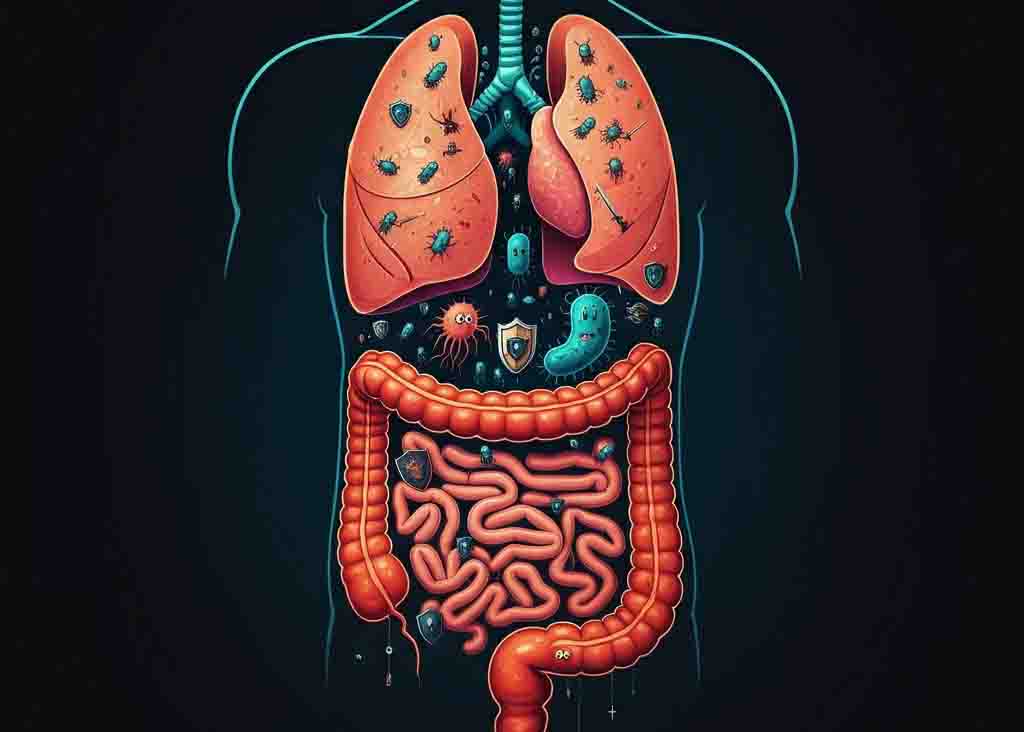The Army Inside You: How Gut Bugs Fight Disease
Did you know that trillions of microscopic organisms are living inside your gut, working tirelessly to protect your health?
Far from being unwelcome invaders, these 'gut bugs' form a powerful inner army that plays a crucial role in fighting off disease, boosting your immunity, and even influencing your mood. Prepare to be amazed by the incredible power of your gut microbiome and how understanding it can unlock a new level of well-being.
- Alice Monroe
- May 16, 2025
- 0 Comments
- 2825 Views
Your gut microbiota is a massive community of bacteria, viruses, and fungi in your digestive tract. Don’t worry—they’re not invaders. These microbes help break down complex food, produce essential vitamins (like B12 and K), and protect your intestines from harmful bacteria. Think of it as a living ecosystem, like a rainforest, where balance is everything. When the balance is disturbed, your body can suffer.
1. How do gut bacteria protect you?
Your gut lining is like a fortress; the microbiota are its loyal guards. Here’s what they do: block harmful pathogens from settling; strengthen your gut wall (intestinal mucosa); stimulate protective mucus production.
When your microbiome is healthy, it acts like a shield. But when weakened (due to poor diet, antibiotics, or stress), harmful bacteria can take over, leading to infections, inflammation, or chronic illness.
2. Do you know 70% of your immune system lives in your gut
Surprise: most of your immune system lives right in your belly! Your gut bacteria constantly talk to your immune cells, guiding them to: detect and eliminate pathogens; keep inflammation in check; avoid attacking your own body (autoimmunity).
The gut is not just a digestive organ. It's an immune powerhouse. A well-fed microbiome means a strong, responsive immune system.
Mood, mind & microbes: the gut-brain connection
Have you ever had a “gut feeling”? That’s not just a figure of speech. Your gut communicates with your brain via the gut-brain axis, influencing mood and emotional regulation, anxiety and depression levels, and sleep and cognitive function.
Certain gut bacteria even produce neurotransmitters like serotonin, which is often called the “happiness hormone.” So a happy gut might mean a happier you.
3. How do you take care of your gut bacteria easily?
Want to keep your microbiota strong and balanced? Here are five simple habits:
1.Eat fiber-rich foods: Fruits, vegetables, legumes, and whole grains feed your beneficial bacteria, which consider fiber their favorite fuel.
- Add fermented foods: Yogurt, kefir, kimchi, miso, and sauerkraut contain probiotics that replenish your gut flora.
- Cut down on sugar and processed junk: These feed harmful bacteria and disrupt your microbiome.
- Manage your stress: Chronic stress damages your gut health. Meditation, walking, and deep breathing help restore balance.
- Use antibiotics wisely: Antibiotics kill good and bad bacteria. Only take them when prescribed, and consider taking probiotics afterward.
The gut microbiota is no longer just a scientific curiosity, and it's the center of a new health revolution. It protects you, nourishes you, and even uplifts you. And yet, we’re just beginning to scratch the surface. If tiny microbes can shape your immunity, mood, and digestion… What else could they be doing?
How would your life change if you started taking care of them today? The next time you feel off, don’t just think of medicine, think of your gut.
Because when your microbiota thrives, so do you.

 | Unlock Success with Our Guide
| Unlock Success with Our Guide



0 Comments